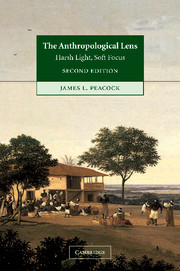3 - Significance
Published online by Cambridge University Press: 05 June 2012
Summary
Your sons and your daughters shall prophesy.
Your old men shall dream dreams, and your young men shall see visions.
Joel 2: 28Delight in culture and recognition of the subjective aspect of interpretation link anthropology to the humanities, yet its striving for systematization, generalization, and precise observation reflects the inspiration of the sciences. Anthropology is an academic discipline, yet it insists on learning in the dust and confusion of life as well as in library or laboratory and sometimes it applies to world issues. Anthropology was largely a product of Western civilization, yet it seeks its understanding globally, and anthropologists (an estimated 35,000 of them) practice around the world.
In short, anthropology does not have a simple, neat, unified vision. The dominant themes in anthropology are often opposed: the scientific versus the humanistic, subjectivity versus objectivity, particularism versus generalization, relevance versus the exotically irrelevant. Furthermore, the discipline is divided into subdisciplines and specialties that pursue their own directions, eroding any unity. Not only are there archeologists, physical anthropologists, sociocultural anthropologists, and linguists; there is a plethora of specialized researchers: one studies the economics of a remote tribe or the policies of congress; another, the knuckle-walking of the gorillas; still another, the computerization of human thought or debates about gender and power. Many anthropologists would deny that there is any overriding perspective. Yet forces in anthropology press toward integration. Many anthropologists seek some unifying vision. What has resulted from this search? A number of schemes and theories have been proposed.
- Type
- Chapter
- Information
- The Anthropological LensHarsh Light, Soft Focus, pp. 113 - 145Publisher: Cambridge University PressPrint publication year: 2001



